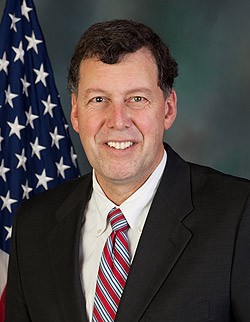Executive director of the Philadelphia Parking Authority explains why they pay $50 million to the School District of Philadelphia each year.
By Scott Petri

When it comes to criticizing the Philadelphia Parking Authority’s annual $50 million payment to the city and School District of Philadelphia, it’s important to look for the facts — and not at a decade-old myth.
The original law “promising $45 million” to Philadelphia schools each year was repealed in 2004 and replaced with a new law that “restricted” the PPA from sending any money to the schools until a $25 million threshold contribution to the city was first met.
Complicating the “$25 million to the city first” provision was an added proviso that should the PPA’s annual on-street revenue increase, so, too, would the percentage of revenue correspondingly increase that must go to the city first.
This year, the PPA will send $40 million to the city before a single dollar can go to the schools. This statutory formula-based distribution provision was recently criticized by Pennsylvania’s auditor general as being to the “immense detriment of the School District.”
The PPA coordinates its operations with the city, whose Finance Department routinely reviews our budgets and expenses. The PPA is audited every year by an outside independent auditing firm, including three in 2017 alone. With more than 1,100 employees, we operate on an unheard-of 40 percent profit margin — returning over $110 million combined to the city, state, school district and the National Park Service each year.
Based on the 2004 legal requirements, the PPA will give the city over $40 million this year with another $10 million going to the schools from our on-street operation alone — constituting .016 percent of the school district’s overall annual $3 billion budget.
The formula for how the PPA distributes its revenue is dictated by state law. Should the law change, the PPA will distribute the revenue as directed. Either way, the city will have $50 million to fund schools from the PPA.
The PPA is committed to doing its part to help the city and school district meet their respective funding needs. That’s why we proposed establishing a $.50 surcharge on every ride provided by transportation network companies — better known to the average rider as Ubers and Lyfts — that currently operate in the city.
Last year alone, more than 20,000 registered Uber and Lyft vehicles provided an estimated 90,000 rides a day in the city. The new TNC law requires the Parking Authority to regulate these services — including the removal of illegal operators, investigation of consumer complaints, inspection of vehicles, monitoring driver qualifications and many other duties.
Funding for this oversight and regulation was cut in half last year, leaving a significant gap in the PPA’s ability to oversee the TNC industry. That’s why the PPA proposed replacing the existing funding allocation with a new regulatory fee of $.50 per trip, which will be added to each taxi and TNC trip in the city.
This will create parity in assessment methods between taxis and TNCs, making it easier for taxi owners to reinvest in their business. This change will also adequately fund regulatory operations and eliminate the need to audit the TNCs’ books.
Because two-thirds of TNC assessment dollars go to the school district, funding will increase significantly under this proposal from $3 million to $11 million a year.
The PPA remains committed to efficiency, transparency and doing the best job possible to serve the people of Philadelphia and the surrounding counties. ••
Scott Petri is executive director of the Philadelphia Parking Authority.




